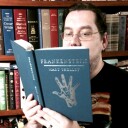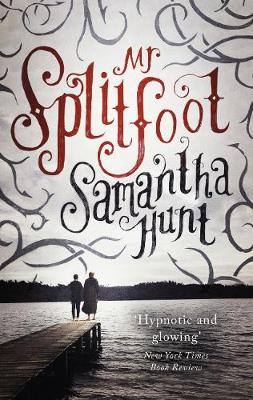
Nat and Ruth are young orphans, living in a crowded foster home run by an eccentric religious fanatic. When a traveling con-man comes knocking, they see their chance to escape and join him on the road, proclaiming they can channel the dead - for a price, of course
Decades later, in a different time and place, Cora is too clever for her office job, too scared of her abysmal lover to cope with her unplanned pregnancy, and she too is looking for a way out. So when her mute Aunt Ruth pays her an unexpected visit, apparently on a mysterious mission, she decides to join her.
Together the two women set out on foot, on a strange and unforgettable odyssey across the state of New York. Where is Ruth taking them? Where has she been? And who - or what - has she hidden in the woods at the end of the road?
Ingenious, infectious, subversive and strange, Mr Splitfoot will take you on a journey you will not regret - and will never forget.
- ISBN10 1472151607
- ISBN13 9781472151605
- Publish Date 5 January 2016
- Publish Status Active
- Publish Country GB
- Publisher Little, Brown Book Group
- Imprint Corsair
- Edition Digital original
- Format eBook (EPUB)
- Pages 336
- Language English
Reviews


Michael @ Knowledge Lost
I picked this book up from the library for a number of reasons. I wanted to see a modern take on the gothic novel and I was interested in the cult-like plot. This book sounded like something I would really enjoy. But sadly I felt like Samantha Hunt just tried to do too much in this novel and nothing really came together as expected. I felt let down by the book and my only consolation was the fact I borrowed the book from the library instead of spending money on it.
Granted there is a lot of interesting elements within Mr. Splitfoot and by a more experienced writer this could of have been a beautifully layered novel. There is a touch of mystery, the gothic, the absurdity and horror elements to be found in the book. I felt like Hunt piled together every great idea she had and tried to pack it into the novel. This left me feeling like she had started so many threads but never actually finished them. The satirisation of religion, or the southern gothic cult, and the mystery or the coming of age story are all really good ideas. There are so many good ideas but at some point you need to stop cramming in ideas and focus on how they work together.
Mr. Splitfoot is an example of why I should never listen to hype. I think it is an entertaining read and there is a little bit of everything. However I wanted more depth, more exploration. I like the ideas the book presents but then it did nothing with them. I felt like this was just sloppy but for someone wanting a thrilling plot, this novel might work. I know I have very different taste in literature to the norm; I just need to remind myself not to fall for hype.
This review originally appeared on my blog; http://www.knowledgelost.org/book-reviews/genre/contemporary/mr-splitfoot-samantha-hunt/

ayla_abbott

gmcgregor
What does it mean to like a book? Does it mean you find it compelling and want to keep reading it when you put it down? Does it mean you think it's well-written? Does it mean that you connect with the characters and care about what happens to them? Does it mean you don't want it to end? Does it mean you want to read it again? Or is it just something ineffable, unquantifiable, that marks the dividing line between "liked it" and "didn't like it"? I can't remember a book before Mr. Splitfoot that has so challenged me to think about what I mean when I say that I "like" a book. I'm still not sure, months after it's been filed away as "read" on Goodreads, whether or not I liked it (I write the first draft of my review very quickly after finishing a book, but I do come back to make revisions a few times before anything officially goes up). That rating? Not a result of any sort of thought process besides that a six seemed too low, and an eight too high.
Mr. Splitfoot is structured as dual narratives that come together at the end. The first, earlier-in-time part of the story follows Ruth and Nat, two of many abandoned children at a state-funded, religiously-motivated facility in upstate New York that cares for them, sort of, until they turn 18. Ruth's older sister Elinor has aged out, so she and Nat declare themselves sisters and bond to each other as their chosen family. As children, they start playing at summoning ghosts with the other kids, and once they reach their late teens, a traveling con man named Mr. Bell takes them and their act on the road. The second, later-in-time part of the story focuses on Cora, Ruth's niece, in the present day. At 25, she's living with her mother, working a dead-end job at an insurance company, and has just been knocked up by older man named Lord who's still married to the wife that was institutionalized after she tried to kill him. Cora only met Ruth (and Nat) once, but that one visit stuck with the then-teenage Cora for life. When Ruth suddenly reappears, after Cora's revelation of her pregnancy to Lord doesn't go well, Cora is just about over everything in her life enough to follow the now-mute Ruth on a journey. Where they're going, and why, and how Ruth came to be mute, are revealed only gradually over the course of the stories as they move forward.
I think, ultimately, that I liked Mr. Splitfoot. I LOVED the language. I highlighted what feels like a quarter of the book in my Kindle and agonized for quite a while over which quote to publish as a part of this post. I've put more Samantha Hunt in my Amazon wishlist, because her way with words is incredible. It reminded me of how Jeffrey Eugenides writes, and Eugenides is one of my all-time favorite authors. And I found the book compelling, both because of its powerful language and because I wanted to see how the mysteries presented by the story were going to be wrapped up. And when they do wrap up, at the end, it makes for a big and satisfying emotional punch. But I thought it moved too slowly, with not enough revelations along the way...instead of whetting my appetite for more, I just kept getting frustrated by not knowing what was going on or where it was headed. And characterization, which is big for me in my enjoyment of a book, was thin. It was hard to understand what motivated the characters to act the way they did. Was it worth reading? Yes, for the wordsmithing alone. But did I enjoy the experience of reading it? Only sort of and sometimes. I did appreciate it by the end, and it stuck with me for a long time.
